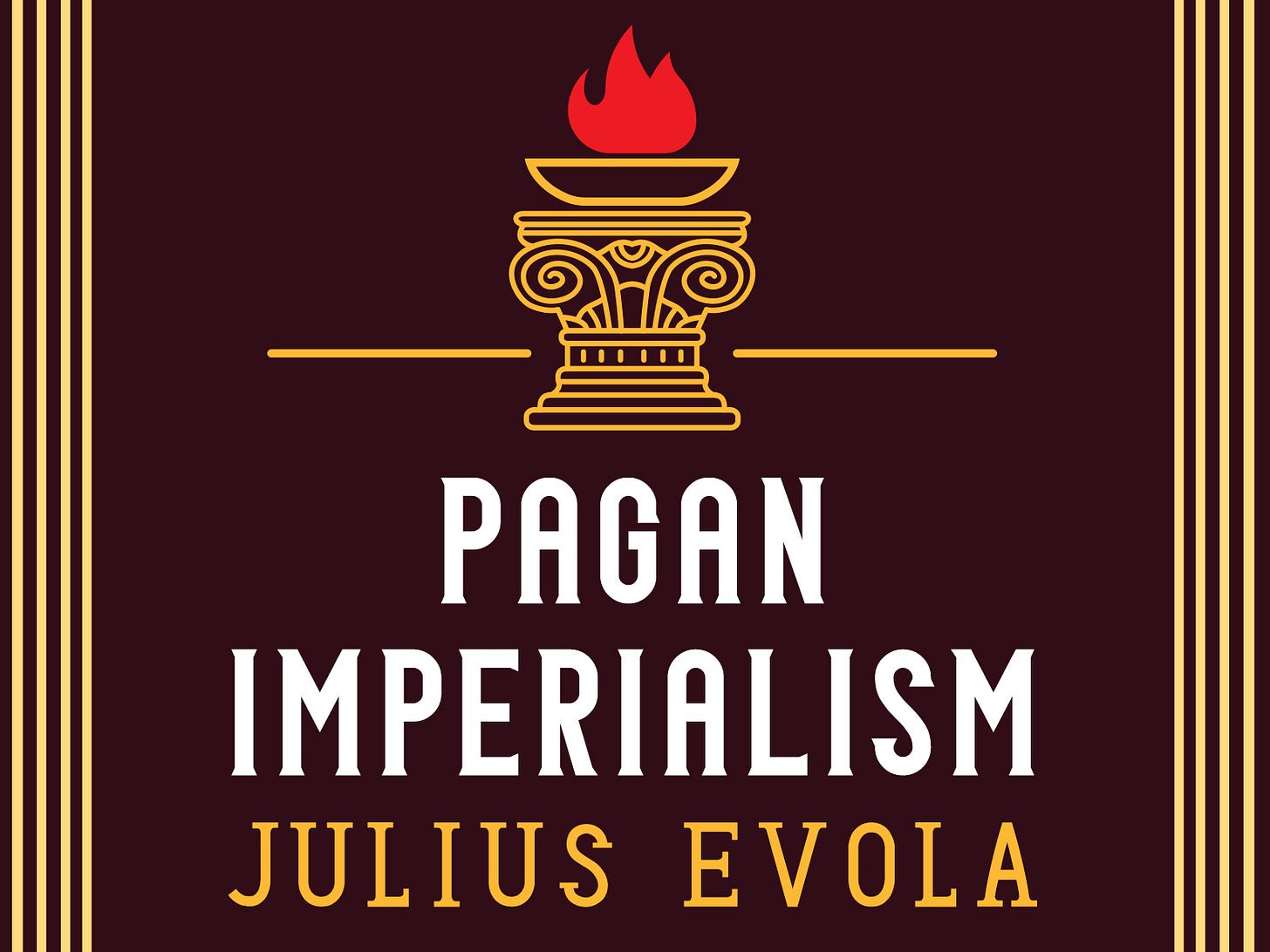Out Now: ‘Pagan Imperialism’
OUT NOW FROM ARKTOS
Julius Evola — PAGAN IMPERIALISM
With a foreword by James Kirkpatrick and an introduction by Dmitry Moiseev
In the 20th century, now, and in the forever future, we are unlikely to find a better spiritual guide than the immortal Baron of Sicily.
— James Kirkpatrick
This new edition of Pagan Imperialism is a brand new translation by Heinrich Matterhorn, combining the original 1928 edition with the 1933 German edition. It also includes Evola’s extensive appendix. This edition is significantly longer than previous English translations and is enriched with detailed footnotes that provide definitions as well as commentary on different concepts and ideas mentioned in the text.
In Pagan Imperialism, Julius Evola presents a fiery critique of the modern world, tracing the decay of Western civilization to its abandonment of its primal pagan roots. Evola condemns the rise of materialism, democracy, and equality, seeing them as signs of European man gone astray. He mourns the loss of the ancient spiritual hierarchy, where gods and warriors reigned supreme, and the cosmos pulsed with mystical energy.
Evola views Christianity as a weakening force that has replaced the proud, heroic spirit of paganism with submission and servitude to an alien deity. He envisions a revival of an empire built on the blood and fire of ancient rites, where the ruler embodies divine authority and the sacred order is restored. Pagan Imperialism is a provocative manifesto for those who dream of a return to a world rooted in the fierce, esoteric traditions of the past.





To critique the world of 100 years ago in such a radical way required a real traditional spirit. The question for everybody on the Right is how can we even live in a world which regressed so much during that period, without being super-radical. In many cases I think the answer is that we are much more anti-traditional (or less traditional) than we think, and therefore much weaker than we think. We simply lack what Evola and many men of his generation had, strong link to the world of Tradition. I think root cause of this issue is in many cases "racial" (in Evola's sense) in nature.